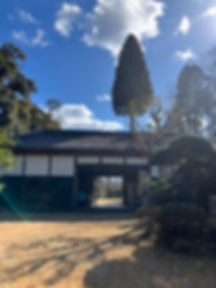
Not a salesperson, your agent

How the Japanese Real Estate Market Works
Understanding the Hidden Structure Behind Japan’s Real Estate Market
One of the defining characteristics of Japan’s real estate market is the presence of information asymmetry and limited public disclosure.
According to JLL’s Global Real Estate Transparency Index, Japan ranks significantly lower than other developed countries—particularly in transaction process transparency and market fundamentals, both of which fall outside the top 30 globally.
One of the key reasons is that transactions in Japan are typically handled by only a broker and a judicial scrivener. With so few parties involved, the process can function without comprehensive information sharing, which in turn reduces the structural need for transparency.
As a result, foreign buyers often face challenges when trying to access consistent, timely, and reliable property information.
Let’s take a closer look at how Japan’s real estate market works—and why these transparency challenges continue to persist.
Related:
Explore the cultural and architectural value of Japan’s traditional homes—and what makes them so unique.
Akiya and Old Homes: Tips and Insights
Understand the appeal, risks, and realities of vacant and aged homes in Japan’s countryside.
Buying a Home in Japan: Tips and Insights
A practical starting point covering the key steps, costs, and post-purchase responsibilities in Japan.
Divided into categories, this Q&A guides you from the first property search through to becoming an owner.
Why Japan Lacks a Centralized Property Information System
Japan has a national property database known as REINS (Real Estate Information Network System), which is accessible only to licensed brokers and supervised by the Ministry of Land, Infrastructure, Transport and Tourism.
However, REINS is fundamentally different from the MLS (Multiple Listing Service) systems commonly found in the United States.
While the U.S. MLS is an industry-driven tool designed for open information sharing, REINS does not include all properties for sale. In fact, many listings never appear in REINS at all.
Japan also has several private property portals, such as SUUMO and athome.
However, these platforms operate independently, with no unified listing standards, update policies, or data consistency.
As a result, the same property may be listed multiple times by different agencies with varying terms, or it may remain online even after it is sold—making it difficult for buyers to judge the reliability or accuracy of the information.
In Japan’s real estate market, where information asymmetry and a lack of centralized listings are major characteristics, buyers often struggle to find accurate and up-to-date property information.
Additionally, Japanese real estate brokerages are primarily structured around acting as intermediaries to close sales contracts, not as advisors or representatives.
This has made it difficult for cultural or legal structures supporting buyer representation to take hold.
Agent Roles and Why Exclusive Buyer Representation Is Rare
In Japan, real estate agents typically operate in one of two roles:
Motoduke (listing agent): The agent who signs a contract with the seller and controls the listing
Kyakuduke (introducing agent): The agent who brings in buyers for the listing
Kyakuduke agents may advertise properties online, respond to buyer inquiries, and assist with contracts.
However, their role is not to represent or protect the buyer's interests.
Their primary goal is to help sell the property, and they work in coordination with the motoduke agent to complete the deal.
Buyer representation in Japan is rare for several reasons.
Legal frameworks, listing systems, and long-standing business customs all reinforce a structure that makes it difficult for exclusive buyer agents (buyer's agents) to operate.
Additionally, dual agency is common, meaning the same brokerage may handle both seller and buyer sides of a transaction.
This reinforces a sales-driven structure and further limits the presence of buyer-side advocacy.
Supplement: The Existence of Off-Market and Closed-Loop Transactions
In some markets—such as rural areas with strong local ties, high-end properties, or investment real estate—properties are often exchanged privately without being listed on REINS or public portals.
These closed-network deals prioritize trust and existing relationships over public exposure.
In such environments, information flows through personal networks, and buyers without connections may have difficulty gaining access.
Structural Barriers and the Practice of “Kakoikomi”
As noted earlier, Japan’s real estate system is marked by information asymmetry.
Only limited disclosure is legally required, and property inspections are not standard practice.
Even key details—like registration fees—may not become clear until after the purchase agreement is signed.
Because the availability and accuracy of property information vary widely, buyers may struggle to compare listings objectively.
In addition, some agencies engage in a practice known as “kakoikomi”, where listing agents deliberately withhold information from other agents in order to close both sides of a deal themselves.
This may include delaying replies, refusing cooperation, or even falsely claiming the property has already been sold.
The goal is to secure full commission through dual agency.
Although kakoikomi is not necessarily illegal, it significantly reduces transparency and creates a clear disadvantage for buyers.
This practice reflects deeper structural issues in the market, where buyers often face limited access to timely and reliable information.
For overseas buyers, especially those used to more transparent real estate markets, Japan’s unfamiliar systems, customs, and transaction norms can be difficult to navigate.
To navigate this environment successfully, it’s important to verify information early and ask questions to clear up any uncertainties.
Working with a trusted agent who can help guide you through the process can also make a big difference.